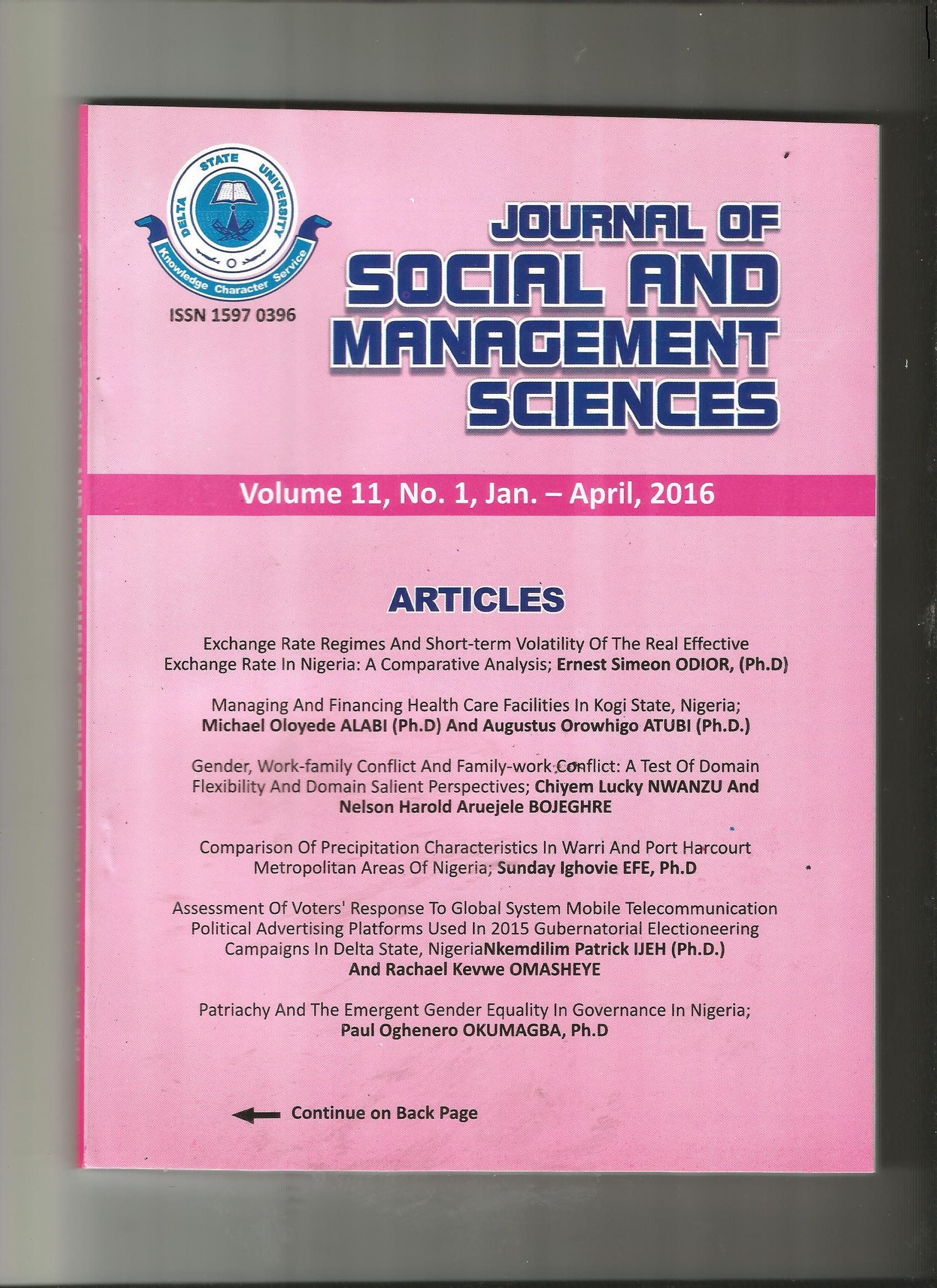
JOURNAL OF SOCIAL AND MANAGEMENT SCIENCES
Journal of the Faculty of Social Sciences, Delta State University, Abraka, Nigeria
ISSN: 1597-0396
DOI: 10.5987/UJ-JSMS
Email: jsms@universityjournals.org
EFFECTIVE MANAGEMENT OF CUSTOMERS AS A TOOL FOR ORGANISATIONAL PERFORMANCE
DOI: 10.5987/UJ-JSMS.17.059.1 | Article Number: 0DCFB08C6 | Vol.12 (1) - April 2017
Author: OKEI Justice Oborakpororo
Keywords: Effective Management, Customer Relationship, Organisational Performance
The thrust of this study is to unveil how effective management of customers could be used as a tool for organisational performance. This study was motivated by the desire to address the problem of loss of customers and subsequent failure by service organisations as a result of poor handling of customers. This loss of goodwill works hardship on business performance. The study thus seeks to find out the extent to which human elements such as bad manner of approach, failure to address customers' complaints by employees reduce customer base, and to determine the relationship between customer base and organisational performance. Data generated from 240 respondents from commercial banks in Warri and Effurun metropolis of Delta State, Nigeria, were analysed using Chi-square to test the hypotheses, and ANOVA to ascertain the variances in response among the five banks, the result indicates that human element such as bad manner of approach, and failure to address customers' complaints by employees reduce customer base and reduction in customer base leads to poor performance. This study recommends that power should be allowed to shift from the organisation to the customers, i.e. organisations should be customer-centric, with employees professionally equipped for the job. Finally, the quality of services to the customer should be at its best. The above findings gave credence to the following conclusions; Human elements such as arrogance, unconcern attitude, unfriendly manner of approach, and facial expression and failures to address customers' complains by the organisation should be discouraged in order for business organisations to perform optimally.
Adedeji, O.E. (2004). Business Today; A contemporary Approach to Management Studies in Nigeria, Lagos: Wadtson Dusme Int'l Business: The Ultimate Resource (2011). London: A &C Black Publishers Ltd. 3rd edition Kotler,P. and Armstrong, G. (2013). Principles of M a r k e t i n g . E n g l a n d : P e a r s o n Education Limited
Lowenstein, M. (2006). What do Customers Want? Harvard Business Review.
McGregor, J. (2006). Would You Recommend Us? New York: Business Week.
Nunes, J.C. and Xavier, D. (2006). Your Loyalty Program is Betraying You. Harvard Business Review.
Nickel, G.W., McHugh, J.M., McHugh, S.M. (2008). Understanding Business, New York: McGraw-Hill/Irwin.
Omo-Okei, J.O. (2014). Basic Marketing for Schools and colleges, Eku: Justice and Peace Printers and Publishers.
Okei, J.O. and Egwuenu, A.S.(2009). Customer Service and Relationship Management; A training Programme. Warri: Wetland Micro Finance Bank Ltd.
Okei, J.O (2016). Introduction to Business Abraka: Delta State University Printing Press.
Rana, S.H., Aneeb, N., and Fareeha, Z. (2015). Effect of Customer Relationship Management on Customer Satisfaction. Procedia Economics and Finance, Vol. 23 (563-567)
Tatiet, A. and Hender, H. (2017). Customer Interaction Management Capabilities on the Micro-Retail Indonesia. Journal of Relationship Marketing. 16(1)
Tracy, B. (2002), The 100 Absolute Unbelievable Laws Of Business Success, Benin City: Library of Joint Heir Publication.
Vukor-Quashie, T.O. (2003). Customer Service, Lagos: TVQ Consulting Group. http://www.ehow.com/about-6502641-customer-service-theory.html
